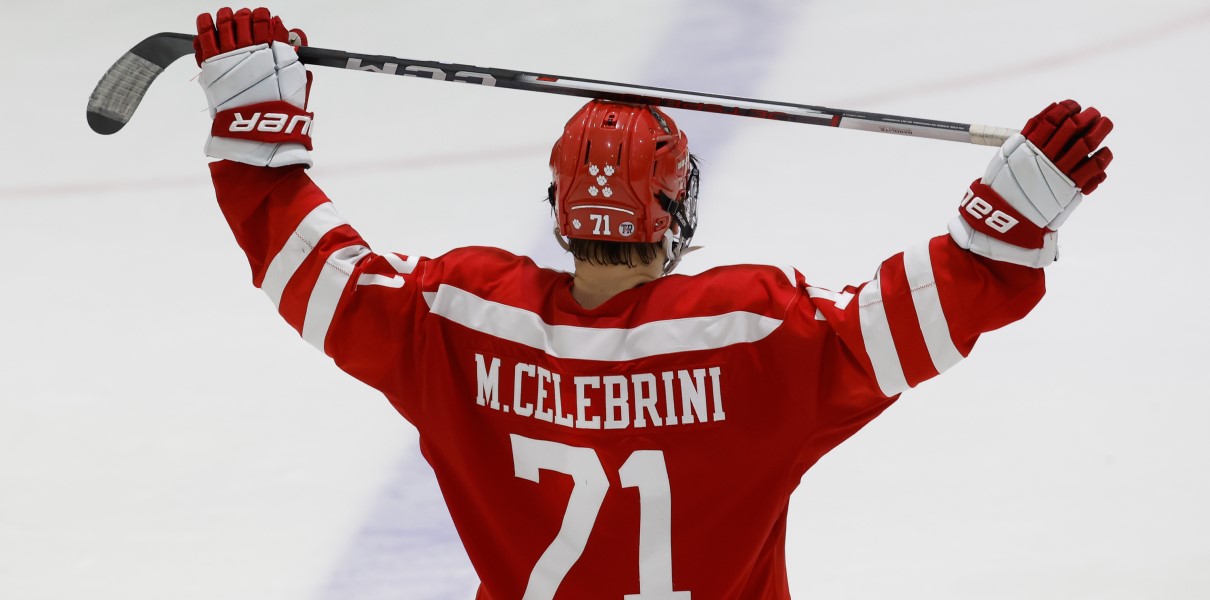Getz never hit 100. Definitely a franchise player. It's an arbitrary mark really.
Scoring is a lot higher now than it was in Getzlaf's prime. Save percentages league wide are the lowest they've been in 30 years IIRC.
Getz never hit 100. Definitely a franchise player. It's an arbitrary mark really.
Yeah, scoring goes up and down, like I said it's an arbitrary gauge for "franchise" player status. Proof is in the pudding on those guys.Scoring is a lot higher now than it was in Getzlaf's prime. Save percentages league wide are the lowest they've been in 30 years IIRC.
Zero chance Celebrini isn't in the NHL next year. And I didn't say anything negative about him. I was questioning Button's logic.
I think what Button was trying to say, was that Celebrini doesn't need to be a perennial 100 point guy in order to be a franchise changing center. He's going to be a two way beast.
Iggy wiggy wiggy woo woo is the highest of quality goal calls
Is that a REFERENCE to something, wtf.
Yak sort of reminds me a bit of a more physical Klingberg. Size, average skating, sorta redhead/blonde RHD, hands and shot. Peak Klingberg was a star for about 5 years but I’d still prefer someone who can defend and not fade like one dimensional players do… like Green, Ekman Larsson, Yandle, Chabot types.I think he is the guy we take if Levshunov is gone

I posted this as a comment there, but it's a topic I'm very interested in as a parent of teenagers and a high school coach. I don't know if this is a good place to try to have this discussion, but I'm curious as to thoughts from folks here.There is A LOT in this article.

Who will draft Trevor Connelly? Inside the NHL's evolving scrutiny of top prospects
NHL evaluators are encountering new areas of concern when judging the suitability of prospects for their franchises.theathletic.com
Won’t be shocked if it’s the Canadians that take him tbh.Playing in the NHL is a privilege not a right. Connelly will get drafted. At some point he'll be worth the risk to a team. At that point it will be up to him to display that he's become a better person than his actions thus far show him to be.
No. They would only do that if Connelly pulled himself out of the draft.Won’t be shocked if it’s the Canadians that take him tbh.
Won’t be shocked if it’s the Canadians that take him tbh.

 www.bleachernation.com
www.bleachernation.com
It is really hard, as you say.I posted this as a comment there, but it's a topic I'm very interested in as a parent of teenagers and a high school coach. I don't know if this is a good place to try to have this discussion, but I'm curious as to thoughts from folks here.
In the high level youth sports world, unfortunately there is often a willful ignorance and tolerance of poor behavior in order to attract and keep talent. Coaches and administrators struggle to determine how to discipline a kid who shows this kind of behavior - do we cut his playing time? Make him do extra conditioning? Remove him from the program entirely? I think youth coaches are hugely influential in kids' lives; they can make a big difference in whether this behavior is curtailed or allowed to persist. Parents, obviously, are also a big factor here.
But the question remains - how do we help this kid get better? What is the NHL's responsibility to a kid like this? What is society's responsibility? One way or another, he's going to be a part of society and bring whatever attitudes and behaviors and worldviews to his community. If the NHL rejects him, which may be completely justified, does his bitterness cause him to lean into his bad behavior? Or will it teach him that actions have consequences and push him to better himself?
Could an NHL team potentially help him grow as a human being, providing a more diverse, better regulated environment where he's forced to confront and correct his hurtful tendencies in order to advance? Or will that simply perpetuate the abusive tendencies, subconsciously reinforcing the idea that he can act out and still be rewarded with a career in professional hockey?
I honestly don't know the answers to any of these questions. They're not simple, they're not black-and-white issues. Where does justice meet rehabilitation? At what point does punishment cross the line into becoming punitive? I believe in grace and forgiveness, but I also believe in caring for victims and in accountability for perpetrators. This is a really, really difficult topic to parse.
Alls fair in love and warLeaving everything else aside, and assuming it's true, I think pissing on some kid's gear in retaliation for that kid hazing you is 100% acceptable and also kind of awesome.
You have.So Ivan's dad was a Dov and his mom was a human.
edit - I'm worried that I've made this joke before and just don't remember.
